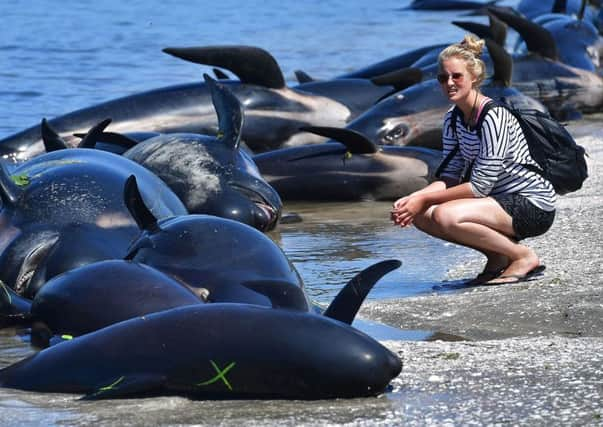Whale strandings in New Zealand hit 650 as new pod beaches


In total, more than 650 pilot whales have beached themselves along a three-mile stretch of coastline over two days on Farewell Spit, at the tip of the South Island. About 335 of the whales are dead, 220 remain stranded and 100 are back at sea.
Department of Conservation Golden Bay operations manager Andrew Lamason said the latest stranding involved a new pod because all the refloated whales from the first group had been tagged and none of the new group had tags.
Advertisement
Hide AdAdvertisement
Hide AdThe news was devastating for hundreds of volunteers who had come from around the country to help with the initial group of 416 stranded whales that was found early on Friday, many of them already dead.
Rescuers are planning to return to the shore today in an attempt to refloat as many healthy whales as they can.
Lamason said about 20 of the new group had been euthanised by conservation workers because they were in poor condition, but more will probably need to be killed.
The team had been hopeful before the new stranding after efforts to refloat the original group of whales had gone well following a frustrating day on Friday.
Lamason said improved weather and crystal-clear water had helped with the rescue attempt. He said about 100 survivors from the initial group were refloated, and dozens of volunteers formed a human chain in the water to prevent them beaching again.
Helpers have been warned to watch out for stingrays and sharks after discovering what looked like shark bite marks on one of the dead whales. But Lamason said there had been no shark sightings.
There are different theories as to why whales strand –from chasing prey too far inshore to trying to protect a sick member of the group or escaping a predator.
New Zealand has one of the highest rates of whale strandings in the world, and Friday’s event was the nation’s third-biggest in recorded history.
The largest was in 1918, when about 1,000 pilot whales came ashore on the Chatham Islands.